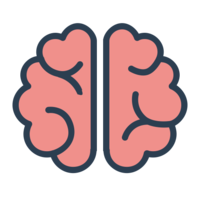
Neuroscience
Relevant Creators
Podcaster and neuroscientist. Associate professor of neurobiology at Stanford University School of Medicine. Host of the Huberman Lab podcast, ranked among the top 10 podcasts on Apple Podcasts and Spotify. The podcast has over 3.5 million subscribers on YouTube.
Neuroendocrinology researcher and author. Professor of biology, neurology, neurological sciences, and neurosurgery at Stanford University. Research associate at the National Museums of Kenya.
I am a neurogeneticist interested in the genetics of brain wiring and its contribution to variation in human faculties. Author of INNATE (2018). http://kjmitchell.com
Following up his 1996 "The Emotional Brain, " the world-renowned brain expert presents a groundbreaking work that tells a more profound story: how the little spaces between the neurons--the brain's synapses--are the channels through which we think, feel, imagine, act, and remember. In 1996 Joseph LeDoux's "The Emotional Brain" presented a revelatory examination of the biological bases of our emotions and memories. Now, the world-renowned expert on the brain has produced with a groundbreaking work that tells a more profound story: how the little spaces between the neurons-the brain's synapses--are the channels through which we think, act, imagine, feel, and remember. Synapses encode the essence of personality, enabling each of us to function as a distinctive, integrated individual from moment to moment. Exploring the functioning of memory, the synaptic basis of mental illness and drug addiction, and the mechanism of self-awareness, "Synaptic Self" is a provocative and mind-expanding work that is destined to become a classic. Neuroscientist at NYU and member of the rock band The Amygdaloids. New book http://deep-history-of-ourselves.com. Follow on http://Mastodon.org @amygdaloid@mastodon.online
Neuroscientist at Stanford, NYT bestselling author, Writer/Host of THE BRAIN on PBS. Companies @Neosensory & @BrainCheck. Latest book: LIVEWIRED.
Science correspondent for The New York Times specializing in neuroscience. Co-authored the popular science book "Phantoms in the Brain: Probing the Mysteries of the Human Mind" with neuroscientist V.S. Ramachandran.
Neuroscientist known for experiments and theories in behavioral neurology, including the invention of the mirror box. Distinguished professor and director of the Center for Brain and Cognition at UCSD.
<b>At the crossroads of art and science, <i>Beautiful Brain</i> presents Nobel Laureate Santiago Ramón y Cajal’s contributions to neuroscience through his groundbreaking artistic brain imagery.</b><br /> <br /> Santiago Ramón y Cajal (1852–1934) was the father of modern neuroscience and an exceptional artist. He devoted his life to the anatomy of the brain, the body’s most complex and mysterious organ. His superhuman feats of visualization, based on fanatically precise techniques and countless hours at the microscope, resulted in some of the most remarkable illustrations in the history of science. <i>Beautiful Brain</i> presents a selection of his exquisite drawings of brain cells, brain regions, and neural circuits with accessible descriptive commentary.<br /> <br /> These drawings are explored from multiple perspectives: Larry W. Swanson describes Cajal’s contributions to neuroscience; Lyndel King and Eric Himmel explore his artistic roots and achievement; Eric A. Newman provides commentary on the drawings; and Janet M. Dubinsky describes contemporary neuroscience imaging techniques. This book is the companion to a traveling exhibition opening at the Weisman Art Museum in Minneapolis in February 2017, marking the first time that many of these works, which are housed at the Instituto Cajal in Madrid, have been seen outside of Spain.<br /> <br /><i>Beautiful Brain</i> showcases Cajal’s contributions to neuroscience, explores his artistic roots and achievement, and looks at his work in relation to contemporary neuroscience imaging, appealing to general readers and professionals alike.
Computational neuroscientist | Book "Models of the Mind: How physics, engineering & mathematics have shaped our understanding of the brain" http://tinyurl.com/h9dn4bw7
Doctor of Psychology, Professor, Family, Music Lover. All views expressed are my own. 😎
Neuroscientist | Brain Inspired Podcast
Professor of Psychology